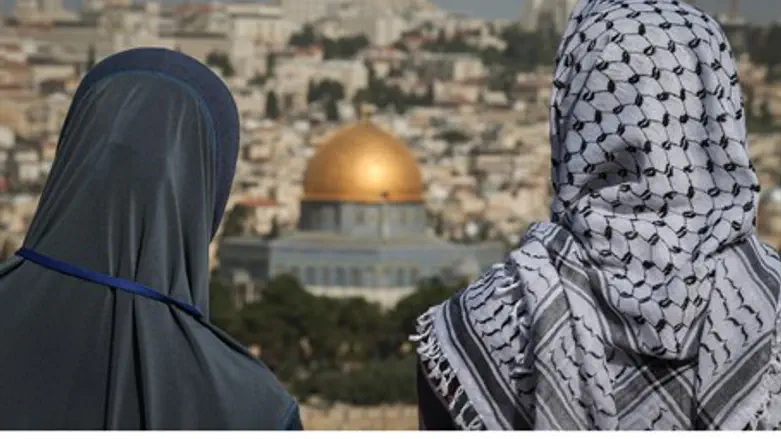
The Palestinian Authority (PA) leadership warned of renewed attempts of "extremist settlers" in support of the Israeli government to "break into" the Temple Mount during the Tisha B'Av national day of Jewish mourning (this Sunday), and to "contaminate" the site via their mere presence there.
The Supreme Council for Islamic religious rulings, headed by Grand Mufti of the Palestinian people, Sheikh Mohammed Hussein, said in a statement Friday that "extremist Jews" who enter the compound of the Al-Aqsa Mosque on the Temple Mount "defile" the holy place and may lead to a religious war.
The statement emphasized that despite Israel's quest to "Judaize" the Mount - which is Judaism's holiest site and the site of both Holy Temples - the rights to the area are exclusively Muslim.
The Council called on the Palestinians and Muslims all over the world come to Jerusalem to stop the "occupation's schemes" using all means and methods and to maintain the "purity" of the city and thwart attempts to "taint" it - in a clear incitement to further violence on the Mount, which is a site of regular Arab rioting.
Dr. Jamal Amer, defined by the Hamas-backed Palestine newspaper as an expert on Jerusalem affairs, ahistorically claimed that the Temple is actually a Roman place of worship, built by the "Arab" King Herod, and has no connection to the Jews, historically and religiously. Amer also claimed that Jews falsify history due to greed regarding the holy city.
The Jordanian Waqf retains de facto control of the Mount even since its liberation in the 1967 Six Day War, and it has forbidden Jews from praying at the site despite Israeli law ensuring freedom of worship.
Arabs have repeatedly tried to erase the Jewish nature of the site, where the First and Second Temples stood, by destroying ancient Jewish artifacts and building illegally.
The calls to incite further violence against Jews on the Mount were made just days before Tisha B'Av, the national day of mourning over the destruction of both the First and Second Temples by the Babylonians and Romans.